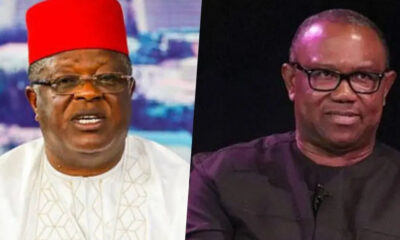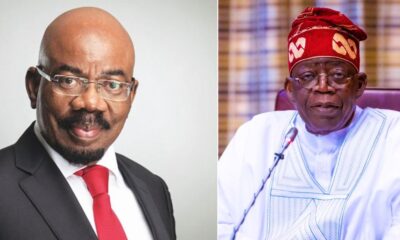Opinion
Tinubu’s risky Niger gamble, Shetty’s embarrassment, by Farooq Kperogi
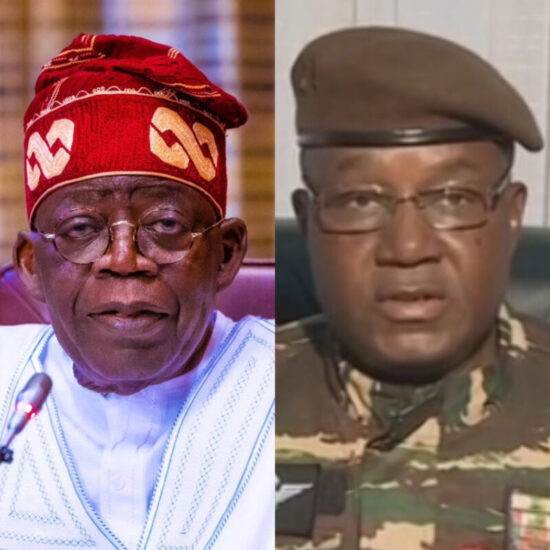
Tinubu’s risky Niger gamble, Shetty’s embarrassment, by Farooq Kperogi
President Bola Ahmed Tinubu recently wrote to the Senate to inform it of an impending “Military build up and deployment of personnel for military intervention to enforce compliance of the military junta in Niger should they remain recalcitrant.” This is a dangerous, ill-advised, potentially self-destructive gamble Tinubu would do well to give up because it has the potential to consume not just him but also Nigeria.
I detest military regimes because I am repulsed by any system that imposes unequal, predetermined structural limits on the aspirational compass to leadership. It is for the same reason that I despise the unearned, inherited authority that monarchies represent. Everyone should, at least in theory if not in practice, have the latitude to aspire to the highest level of leadership in the land.
Military rule limits leadership to professional people, as monarchies limit leadership to bloodline.
Additionally, as someone who came of age during totalitarian military regimes, I loathe the brutality and dehumanization that accompany all military rules and wish that no country would ever have to endure the nightmare of military monocracies.
But going to war with another country because it unfortunately devolved into a system of government that, in our judgement, is abhorrent, is unwarranted arrogant, provocative, and reckless. This is particularly more so because, at least for now, the new military junta in Niger Republic enjoys enormous goodwill among the vast majority of the citizens of the country.
I have seen massive demonstrations in support of the new military regime in rural and urban Niger— and against President Bola Tinubu whom demonstrators have rechristened “Ebola Tinubu” to signal the toxicity and ‘unwelcomeness’ of his intrusion into the internal affairs of their country. Nigeriens obviously have no problems at the moment with the junta in power. When they do, they’ll find a way to deal with it. Who are we to tell them how they should conduct their affairs and whom they should prefer as their rulers?
Plus, in Nigeria, the tide of public opinion is overwhelmingly against any form of Nigeria-led military aggression to restore civilian rule in Niger. Nigeria is itself wracked by disabling internal turmoil on multiple fronts, which the Tinubu administration hasn’t yet shown any willingness to confront, much less contain. Why is Tinubu igniting a fire in another person’s home to “resolve” a squabble there instead of putting out the enduring conflagration in his?
And who is paying for this unsolicited, foolhardy misadventure? Nigerians have been pushed to the very edge of existence (and several have already fallen off the cliff) by the cruel removal of fuel subsidies, yet the Tinubu administration will expend billions (that it repeatedly says the country doesn’t have) to start a needless and avoidable war in a country that is at peace with its anomaly.
Is it the 1 trillion naira the government claimed it has saved from the removal of subsidies that it will use to fight a thoughtless war in Niger that has neither tactical nor strategic benefits for Nigeria? It makes absolutely no sense.
Nigeriens don’t want a war. Nigerians, too, don’t. On whose behalf is Tinubu starting this pointless war then? “Democracy”? Whose “democracy”?
Well, if preservation of civilian rule is the sole motivation for Tinubu’s intervention in Niger, why is he unconcerned about military rule in Mali, Burkina Faso, and Guinea, which are also members of the Economic Community of West African States (ECOWAS)?
True, Tinubu wasn’t president when these other coups took place, but what’s stopping him from adding Mali, Burkina Faso, and Guinea to his list of West African countries that must reinstate their ousted civilian presidents if “democracy” is his overriding concern?
The only thing that makes sense at this point is the widespread insinuation that Tinubu is doing the bidding of Western imperialist powers whose approval he seems insanely desperate for. Since his conservative, stultifying, and asphyxiating economic policies, which have paralyzed the country, are already merely a page from the World Bank and the IMF, it’s apparent that his greatest aspiration isn’t to serve Nigerians but to be a dutiful poodle of the West.
On the instructions of the West, he is killing his people with hunger. On the instructions of the same West, he wants to kill his neighbors with war.
In a private communication, famous University of Texas history professor Toyin Falola pointed out that this is France’s war. “France can give up Mali and Burkina Faso, but Niger is the only country it will not give up without a fight,” he said. “Agadez is the life wire of France, without which it will be using generators like Nigeria. No gas from Russia, and uranium is what it uses for its nuclear energy power. Nigeria cannot use its resources and army to work for France.”
Is Tinubu committing Nigeria to a violent entanglement with Niger on behalf of France because Paris is now his second home—like London used to be Buhari’s second home?
Another dimension to the situation in Niger that Tinubu and his advisers seem oblivious of is that Mohamed Bazoum was a deeply unpopular president who, as Professor Falola said, didn’t win his election. “His predecessor planted him there and gave his [i.e., predecessor’s] son a cabinet appointment,” Falola said. “Niger is a democracy on paper. The mafia distributes rent. Niger has the highest number of land cruisers per capita in Africa.”
What Professor Falola describes isn’t exclusive to Niger, of course. It’s the feature of most “democracies” in Africa. But when you throw Niger’s identity politics into the mix, you are staring at a really combustible situation.
Bazoum comes from Niger’s Arab ethnic minority (with roots in Libya) who constitute less than one percent of the population.
The Hausa constitute a little over 50 percent of the population. The Zarma (whom Hausa people call Zabarma, which probably influenced the Yoruba Sabarumo) are a distant second with a little over 20 percent of the population, although they dominate Niger’s military and civil service. There are other minor groups in the country such as Dendi (whose language is mutually intelligible with Zarma but who consider themselves different from the Zarma), Tuaregs, Kanuri, Fulani, and Gurma.
Former President Mahamadou Issoufou is Hausa, but for personal gains he rigged Mohamed Bazoum, a minority Arab, as his successor. Bazoum was overthrown by Abdourahamane Tchiani who appears to be Zarma going by the region of the country he comes from, but who enjoys the support of the Hausa.
The Zarma and the Hausa (who together constitute more than 70 percent of the population) were resentful that an Arab (with a minimal command of the Hausa language and probably zero proficiency in Zarma and whose people are less than one percent of the population) was imposed as president over them without actually winning a legitimate election.
Forcing the return of Bazoum as president would be a declaration of war against more than 70 percent of the country’s population. But that’s not even my worst fear. In the event of an all-out war, there would be refugees from Niger all over northern Nigeria, which could, in fact, flare up a Yoruba-Hausa ethnic strife in Nigeria because the narrative would be that a Yoruba man is killing Hausa people.
Should that happen, that could end the Tinubu presidency. Is it worth it? I don’t think so.
Maryam Shetty’s Unexampled Ministerial Embarrassment
I had no idea who Maryam Shetty was until I saw what seemed like an unremitting cornucopia of congratulatory messages directed at her on Facebook on her appointment as a minister by President Bola Ahmed Tinubu.
I saw jokes about how almost every (northern) Nigerian on social media somehow found a way to establish connections to her. I was going to join the joke by saying I was connected to her, too, because she shares the same first name as my second daughter, graduated from my alma mater in Nigeria, and even got some sort of certification from Emory University in Atlanta where I live.
Then I woke up Friday morning to the shocking news that her nomination had been withdrawn. I don’t recall if there is any precedent for this kind of embarrassment. Why was her name announced when the president hadn’t made up his mind that he wanted her on his cabinet? The public ridicule she has been subjected to can’t be redeemed by any compensatory appointment.
I thought her appointment sent a symbolic message to young women that they, too, matter. Kwara State governor Abdulrahman Abdulrazaq has already blazed a trail in appointing everyday young women with no roots in political dynasties into commissionership—to the annoyance of political old stagers. I thought President Tinubu was following in Abdulrazaq’s lead and was going to write a full-length column to commend this.
The embarrassing but totally preventable flip-flopping of the Tinubu administration is becoming truly unsettling.
* Kperogi is a Nigerian-American professor and columnist
Opinion
Why Yahaya Bello does not represent the youth – Farooq Kperogi

Why Yahaya Bello does not represent the youth – Farooq Kperogi
A persistent but entirely illogical and factually inaccurate response to my column on former Kogi State governor Yahaya Bello revolves around the notion that his terrible record as a governor somehow delegitimizes youth participation in government and undermines the “Not Too Young to Run” bill.
First of all, Yahaya Bello became a governor at 41 in 2016. There’s no country in the world where 41 is regarded as “youth.” He is a full-grown adult.
The UN defines youth as people between the ages of 15 and 24. In the United States, it’s between 15 and 24 years. In the European Union and the United Kingdom, it encompasses individuals aged 15 to 25.
The Commonwealth limits it to the ages of 15 through 29. But the African Youth Charter, which has perhaps the most elastic definitional compass of youth in the world, defines it as “any individual between 15-35 years of age.”
The Nigerian National Youth Policy obviously derives inspirational strength for its conception of youth from the African Youth Charter because it also officially refers to people between the ages of 18 and 35 as belonging to the “youth.”
This is all a giant irony, of course. Nigeria, which has an average life expectancy of 55 years, regards 35 years as “youth” (which means, on average, Nigerians spend only 20 years as “adults”) while industrialized societies with higher average life expectancies (it’s 77 for the United States and 81 for the European Union) have a lower age threshold for youth.
It’s even worse in the general Nigerian population, which regards a 48-year-old man (who has already lived more than half of his life) as a “youth” and uses his indiscretions, ineptitude, infantilism, and larceny as justifications to shut out young people from governance.
Yahaha Bello didn’t need the “Not Too Young to Run” legislation to be a governor. The minimum age required to be a governor in the 1999 constitution—before the “Not Too Young to Run” bill was signed into law on May 31, 2018—was and still is 35. The bill did not change the age requirement for governorship positions.
READ ALSO:
- Judicial Reform: NBA seeks removal of CJN as head of NJC
- Why I’m not ashamed doing menial jobs in US — Doris Simeon
- Tinubu names Jim Ovia chairman of student loan fund
That was why we had many people who were elected governors in their 30s in 1999. For example, Ibrahim Saminu Turaki was elected governor of Jigawa State at the age of 36. Donald Duke was 38 years old when he was elected governor of Cross River State in 1999. Orji Uzor Kalu of Abia was 39. Ahmad Sani Yerima of Zamfara was 39. Enugu State’s Chimaroke Nnamani was 39.
With a few exceptions, the rest of the governors in 1999 were in their 40s (Delta State’s James Ibori was exactly 40), which is consistent with Yahaya Bello’s age. Why didn’t critics of youth participation in government invoke the failures of much younger governors than Bello at the incipience of the Fourth Republic to delegitimize “youth” participation in government?
The obsession with the youth of people in government in Nigeria is particularly strange because we have had Yakubu Gowon, a then 31-year-old unmarried man, as Head of State. Olusegun Obasanjo was 38 when he first became the head of state. Muhammadu Buhari and Thomas Aguiyi-Ironsi were 41. IBB was 44.
In fact, most of the early leaders we venerate today were elected/appointed into their positions when they were in the same age group as Yahaya Bello. For example, Sir Ahmadu Bello assumed office as the Premier of the Northern Region on October 1, 1954, at the age of 44.
Chief Obafemi Awolowo became the Premier of the Western Region in 1952 at the age of 44. Sir Abubakar Tafawa Balewa was 47/48 when he became the Prime Minister of Nigeria in 1960. Murtala Muhammed was only 36 when he became the Head of State of Nigeria on July 29, 1975.
The examples are legion, but the point is that there is nothing unusual about someone of Yahaya Bello’s age being a governor. That’s why I find the focus on his age both ignorant and ahistorical.
Of course, more than anything, all that this points to is that people who got into government in their 30s and 40s two or three decades ago are still in power or hanging around the corridors of power, which leaves only a little space for new entrants from that age bracket.
So, the few people in their 30s and 40s who make it to the circles of political power in contemporary Nigeria come across as novel, as marvels of young people in government, and as generational curiosities whose missteps are exteriorized to all people within their age range who are outside the orbit of power and who might want to get into it.
That’s unfair. Just like the incompetence, callousness, and venality of older politicians shouldn’t be used against all older people, Yahaya Bello’s villainy and corruption should not be used against people in his age bracket— or younger.
This attitude implies that had Yahaya Bello been a geriatric fuddy-duddy, and not a 48-year-old man, he would not have been the debauched, profligate thug that he is, which is absolute flapdoodle.
Age has no effect on integrity and probity. It is defeatist and evinces low self-worth for young people to beat themselves up because a 48-year-old man who became a governor at 41 turned out to be a rotten, incurable crook who pillaged his state without the slightest tinge of compunction and then installed a slavish, empty-headed puppet as his successor.
READ ALSO:
- Yahaya Bello: Court summons EFCC chair over contempt
- Nollywood veteran actor, Ogunjimi is dead
- Soldier dies while ‘rushing to rescue brother arrested by policemen’
It’s mostly young people—in the peculiar way Nigerians understand young people—who are saying Yahaya Bello’s spectacular incompetence and depravity symbolize the failure of “youth” in governance and that the older generation is justified in its reluctance to share power with young people.
In other words, if a few “youths” in government mess up, all youth should take the blame for it, accept that the failure of one of them is the failure of all of them, and then step back for the older order to continue to misrule exclusively.
Notice that no one, certainly no older person I know of, says older people shouldn’t be allowed to govern because they’ve been messing up all these years. Only the “youth” are delegitimized on account of their age when they mess up. That is reverse ageism, that is, the idea that only old age, not youth or knowledge, should confer authority or respect on people.
We are more than our ages. We embody a totality of multiple influences. The fact that Yahaya Bello was a grasping, primitive bandit in government doesn’t mean every 41-year-old who becomes a governor will be like him. That’s ridiculously reductionist.
In any case, youth or old age are not permanent states. They are in perpetual flux. It is yesterday’s youth that become today’s older people.
Nigeria is one of the world’s youngest countries with a median age of 16. Yet, when we look at the corridors of power, the vibrancy of youth is conspicuously absent. This gap between our young population and their representation in governance is not just a gap in numbers, but a gap in fresh ideas, innovation, and the spirit of our nation.
Yahaya Bello did not fail because he was young. He failed because he never prepared to succeed, and that wasn’t a function of his “youth.” Donald Duke was the second youngest governor in 1999, and he is credited with making tremendous marks in governing Cross River State.
Yes, age and experience have their place. But so does youth. An Igbo proverb, after all, says “If a child washes his hands, he could eat with Kings.”
Farooq Kperogi is a renowned Nigerian newspaper columnist and United States-based professor of journalism
Opinion
Farooq Kperogi: Yahaya Bello’s EFCC comeuppance

Farooq Kperogi: Yahaya Bello’s EFCC comeuppance
I am not from Kogi State, but I have strong opinions on former Kogi State governor Yahaya Bello—as most Nigerians do. There is no doubt that few politicians in Nigeria are as universally reviled and despised as Yahaya Bello because of how he turned governance into a violent infant play, denuded it of even the faintest pretense to sanity and respectability, and developed an uncanny capacity to incite raw rage in people.
That’s why there is mass excitement in Nigeria over his current travails with the Economic and Financial Crimes Commission. Most people see his fate as a richly deserved karmic retribution for his eight years of incompetent, anger-arousing, profligate, and terroristic governance in Kogi State, the consequences of which transcended the bounds of Kogi State.
He began his tenure as governor as the symbol of hope for youth inclusion in governance. But he soon became a byword for recklessness, malfeasance, ineptitude, incivility, and the greatest betrayer of the youth constituency. He shouldn’t have been governor—or, for that matter, anything in politics.
He had no guardrails on his tongue. Like a spoiled, over-indulged, ill-bred, and uninhibited child, he blabbered whatever inanities caught his febrile fantasies with no care for consequences. He ridiculed civil servants, and terrorized opponents with full-strength viciousness— as if he would remain the governor of his state forever.
He even nicknamed himself—or was nicknamed by his flunkies—as the “white lion.” But when the EFCC came calling, the “white lion” transmogrified into a pitifully frightened, yellow-bellied chicken. Now the white-lion-turned-chicken is fluttering and hiding like he has gone insane.
READ ALSO:
- BREAKING: Tension as anti-riot police forces take over Benue APC secretariat
- Liverpool crash out of Europa as Ademola Lookman’s Atalanta win 3-1 agg
- Europa: Martinez two penalty saves power Aston Villa into S’final
A wanted notice has been issued for him by the EFCC, the Inspector General of Police has withdrawn all police officers assigned to guard him, and the Nigerian Immigration Service has placed him on its watchlist. I can’t wait to see him brought to justice for all the crimes he committed while he held sway as the governor of Kogi State.
In a 2022 article, I described him as an ignorant, incorrigibly petulant child who was trapped in an adult’s body, who was destroying the littlest semblance of decency left in government in Kogi State, and who thought he could democratize his infantilism nationwide by seeking to be president.
According to several Kogi State civil servants, Bello didn’t pay full salaries for most civil servants for most of his tenure as governor, yet he is being hunted by the EFCC for allegedly laundering up to 80.2 billion naira, presumably the money he should have used to pay the salaries of workers.
In less than one week after he was sworn in as Kogi State governor on January 27, 2016, according to a May 13, 2016, Premium Times’ investigation, Bello approved N250 million naira for himself as “security vote” and another N148 million to “furnish” and “renovate” his office. At that time, Kogi State workers hadn’t been paid their salaries for months.
Bello’s spokesman at the time said the raiding of the state’s treasury in the name of security was justified because Kogi had become the seedbed of crime as a result of its location.
“It is public knowledge that Kogi State has been contending with serious security breach for the past 10 years,” he said. “As a result of the location of the state as gateway to many states of the federation, the state drifted into a criminal hotbed. Also, years of gross maladministration and blinding embezzlement has left the youth bare, exposing them to all sorts of criminal activities to survive. Kogi became a haven of robbers and kidnappers.”
That was the start, which most people ignored. Everything went downhill from there. The man didn’t even pretend to govern.
In 2020 when COVID-19 raged and most people were caught in a complex web of uncertainties and anxieties about the new infectious disease, Bello chose to become a abhorrent, ignorant conspiracist and the conduit for all sorts of wild, crazed, dangerous, fringe chatter about the disease.
READ ALSO:
- Bobrisky, Cubana Chief Priest and Indabosky Bahose
- Damagum to continue as PDP national chairman until August – NEC
- Reversing electricity tariff hike will cost us N3.2 trillion in subsidy payments – FG
Yet, although he openly questioned the existence of COVID-19, he fed fat on it like the vampire that he is. The Premium Times of March 26, 2021, reported that Bello spent 90 million naira in 2020 to purchase COVID-19-tracking software that cost only 30 million naira.
“The software, approved by a COVID-19 sceptic, Governor Yahaya Bello, was for tracking coronavirus cases in the state,” Premium Times reported. “However, the software is no longer functioning as the developers said they had a contract to host it for only one year.”
It’s impossible to chronicle Bello’s in-your-face financial malfeasance in a newspaper column. Not even a book-length narrative is sufficient to do justice to how much Bello financially bled and sucked the blood of Kogi State.
The man’s daring electoral terrorism is another issue that has earned him well-deserved loathing in Nigeria. This is a man who commanded his toadies to dig deep ditches on roads (that were built with billions of naira) just to stop voters from a part of the state he knew won’t vote for his candidate from being able to cast their votes.
According to Senator Natasha Akpoti-Uduaghan, at the time the senatorial candidate of the Peoples Democratic Party (PDP) for Kogi central, “We woke up this morning to the news that Yahaya Bello has instructed the excavation of all access roads to my hometown. My hometown is cut off from Obangede community; it is also cut off from Eika. And right now, I am in front of another road which was just excavated, thereby cutting me out of travelling out of my hometown.
“What this means is INEC would not be able to [access] certain communities, especially my hometown. What this also means is if Yahaya Bello and his APC goons decide to attack me and the good people of Kogi central in Ihima community, it will be impossible for the DPO to get across to this place. That means I, Natasha Akpoti-Uduaghan, my fellow candidates, and supporters are trapped. We have no way out because Yahaya Bello has dug gullies.”
This is a vile and detestable vermin who should never have been allowed to get anywhere close to governance, much less be a governor. He is an excellent specimen of how not to be a governor—or, in fact, a human. I have not the littlest drop of sympathy for him.
Given the peculiarities of the Nigerian political environment, it seems likely that he is in trouble with the EFCC only because he has fallen out of favor with the president or his henchmen. I honestly don’t care.
More than anything, though, Bello’s troubles exemplify the transience of power and the imperative for humility when you wield it.
Farooq Kperogi is a renowned Nigerian newspaper columnist and United States-based Professor of Journalism.
Farooq Kperogi: Yahaya Bello’s EFCC comeuppance
Opinion
Bobrisky, Cubana Chief Priest and Indabosky Bahose

Bobrisky, Cubana Chief Priest and Indabosky Bahose
Tunde Odesola
(Published in The PUNCH, on Friday, April 19, 2024)
Abido Shaker! Life is a widening gyre where women fear cockroaches, cockroaches fear cocks, cocks fear men, and men fear women. A few years ago, Chukwemeka Cyril Ohanaemere was an ordinary name in Nigeria until fakery kissed bombast and vainglory took materialism to bed, birthing ‘The Lion Himself’, ‘The War’. ‘The Fight’, ‘Dabus Kabash’, ‘The Indabosky Bahose’.
Ohanaemere, the unlettered Anambra indigene, more famous for his comic displays than his cleric claims, also calls himself ‘The Liquid Metal’, which is another name for mercury. Ohanaemere aka Odumeje doesn’t call himself ‘The Liquid Metal’ because he understands that mercury is the only metal that is liquid at room temperature. He calls himself ‘The Liquid Metal’ because of the fancy the name carries.
In a viral video, 41-year-old Odumeje boasted to some fans about his numerous spiritual powers that he hasn’t used yet, saying, “…Indabosky Bahose is power, Lebadusi Prelamande is power, Abido Shaker is power, Dabus Kabash is power, Lipase Parrel is power, Gandukah Gandusah is power; those powers, I have not touched them, I’ve never used them, I’m still on Indabosky Bahose!” All na wash (in Nyesome Wike’s voice)
Odumeje’s gung-ho powers are like the sands of the beach. When angry, he can make people go deaf and dumb because he’s the ‘Warlord’, which he pronounces as ‘Worrod’. In 2022, however, when the men of the Anambra State Environmental Task Force pulled down his illegal church in Onitsha, the all-conquering God that Odumeje serves refused to rescue him. Odumeje’s God was probably snoring when the officials of the environmental task force rained slaps on him and kicked him around like a graven image.
Because of their unique adaptability nature, the female gender deserves the ‘Liquid Metal’ title much more than the jester of Onitsha. But the female gender shouldn’t undermine their flexibility and overlook a worrisome development that the case of popular cross-dresser, Idris Olanrewaju Okuneye, presents.
READ ALSO:
- Damagum to continue as PDP national chairman until August – NEC
- Reversing electricity tariff hike will cost us N3.2 trillion in subsidy payments – FG
- Bandits gun down 23 villagers in Kaduna community
Ever since Okuneye aka Bobrisky confessed before a Federal High Court in Lagos, to possessing a cock, the calm in the women’s rights community nationwide has been disturbing.
By his confession, it’s not out of place to imply that Bobrisky had seen the nakedness of women in public restrooms. In this light, I had expected Nigerian women’s rights advocacy groups to test the (in)elasticity of our laws by pressing against Bobrisky charges such as invasion capable of causing breach of law and order, intrusion of privacy, and potential sexual threat against children and women, among others. Or, how else can you explain the dangers posed when a man in a woman’s clothing uses the same restroom with unsuspecting females?
In the US, a man or woman who wishes to change their sex must first live the gender they want to change to for a year before undergoing sex-change surgery. They must also undergo a series of psychological and psychotherapy care before they can change their gender. This is to test their resolve.
Both Odumeje and Bobrisky are the creations of a society whose gaping vacuum for icons has been filled by Mammon-seeking pranksters. They are the products of a crippling economy and morally shattered nation unfurling as Paradise Lost. This is why you see the millions of Nigerians seeking guidance from yeyebrities, who themselves are lacking-thought broken spirits.
Many see the prosecution and conviction of Bobrisky for naira mutilation as scapegoating, coupled with the ongoing prosecution of a former shoemaker, Pascal Okechukwukwu aka Cubana Chief Priest, for the same offence. The position of people who hold this belief can’t be impeached because scapegoating, according to Merriam-Webster Dictionary, is ‘a goat upon whose head are symbolically placed the sins of the people after which he is sent into the wilderness…’. This is the same reason why the Yoruba say the fellow on whose head the community coconut is broken won’t wait to partake in it, ‘eniti won fi ori re fo agbon, ko ni duro je ni be’.
It was former President Goodluck Jonathan who defined the lack of shoes as an index of poverty. I don’t know whether to categorise shoemaking as a mirror reflecting poverty or affluence. But a background search describes Odumeje as a hustler who ‘had his humble days as a struggling leather designer on the streets of buzzing and busy Onitsha City in Anambra State’. I’m not unaware that the dazzle in razzmatazz can polish a shoemaker into a leather designer on the streets of Onitsha. Cubana Chief Priest wasn’t ashamed to reveal life on the streets of Aba, Abia State, as a shoemaker.
READ ALSO:
- Netizens knock Tinubu aide, Onanuga, over comment on Yahaya Bello arrest
- Boy, 19, nabbed for raping 9-year-old girl in Kwara
- 16 killed as Borno bus runs over ISWAP explosives
Valid questions are being raised as to the parameters used in singling out Bobrisky and Cubana Chief Priest for prosecution when the children of former President Muhammadu Buhari and their powerful guests ‘sprayed’ and trampled on naira during the wedding of Hanan, one of Buhari’s daughters. I’ll offer free consultation here: the Economic and Financial Crimes Commission can pin the prosecution of the two citizens on their serial abuse of the naira, but for Christ’s sake, Nigerians need an explanation on why a musician like Wasiu Ayinde, who was garlanded by an Ogun State monarch, Oba Kolawole Sowemimo, with taped naira notes, is left of the EFCC hook. Sowemimi, who’s the Olu of Owode, was suspended by the Ogun State Council of Traditional Rulers but Wasiu was not even questioned by the EFCC for his consistent abuse of the naira. Is it because Ayinde is the bard of the ruling All Progressives Congress? For the integrity of its brand, the EFCC should explain lest the crackdown be seen as a witch-hunt.
Instead of picking on Bobrisky for naira abuse, numerous online videos of Bobrisky showing Bobrisky claiming to be a woman and having boyfriends abound. Her nickname name, ‘Mummy of Lagos’, points at homosexual allegations trailing her. In an online video, Bobrisky said, “If you dump me, na another man go kari me. Do you get what I’m saying? If you dump me, if you think you’re done with me, na another man wey dey cherish me, wey wan nack me, go kari me.”
On account of this video alone, and in the light of his confession before a court, to being a man, Bobrisky is guilty of the anti-homosexual laws of the country. Also, the EFCC should know the dangers inherent in leaving Bobrisky’s five million online followers, mostly youths, to manipulation and indoctrination.
If Nigeria had laws against homosexuality, the country should man up to defend the laws and stop hiding behind the naira-spraying fingers of Bobrisky – US position on homosexuality notwithstanding. Nigeria and the US both need each other. The ‘not guilty’ plea of Cubana Chief Priest is expected to expand the frontiers of the laws against naira abuse, and I wait to see how the case unfolds. C-o-u-r-t!
Email: tundeodes2003@yahoo.com
Facebook: @Tunde Odesola
X: @Tunde_Odesola
Bobrisky, Cubana Chief Priest and Indabosky Bahose
-

 metro2 days ago
metro2 days agoLabour Day: Nigerian workers are dedicated, resilient, says NURTW leader
-

 Education3 days ago
Education3 days agoBREAKING: JAMB releases 2024 UTME results
-
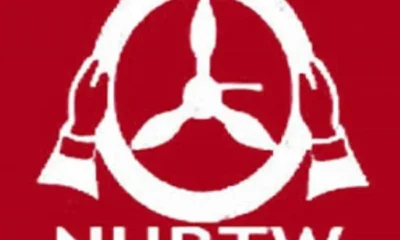
 Auto1 day ago
Auto1 day agoAppeal court takes over NURTW case as NIC withdraws
-

 metro9 hours ago
metro9 hours agoSecurity forces, vigilantes arrest kidnapper terrorising communities in Kogi
-

 metro23 hours ago
metro23 hours agoTerrorists release video of kidnapped palace servant, others in Zamfara
-
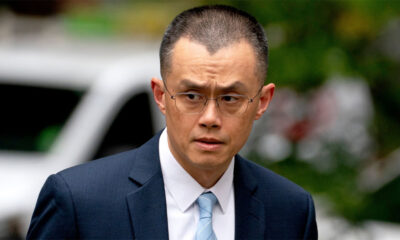
 International1 day ago
International1 day agoBinance founder bags jail term in US
-
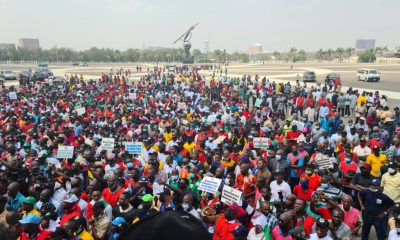
 News2 days ago
News2 days agoFG approves salary increase for civil servants, military, police
-
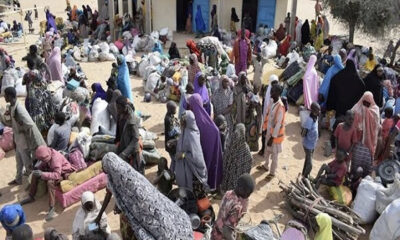
 News2 days ago
News2 days agoFG set to repatriate 20,000 Nigerians from Chad, Cameroon

